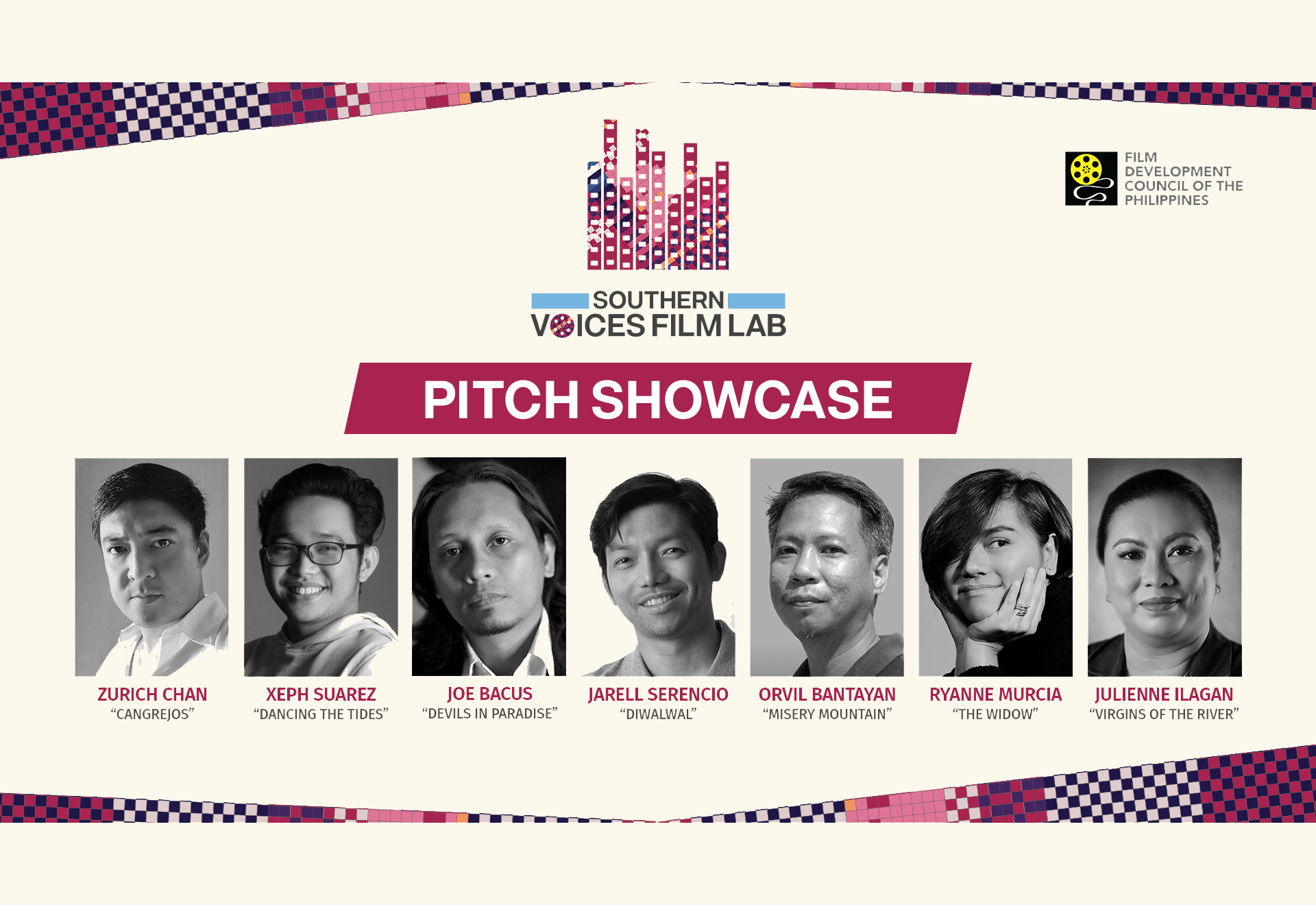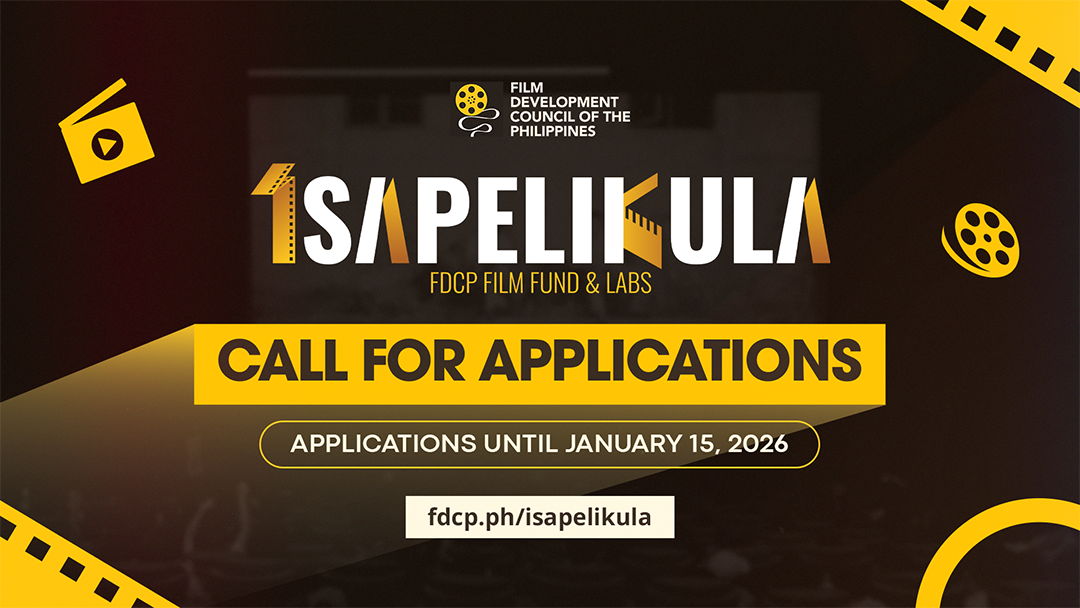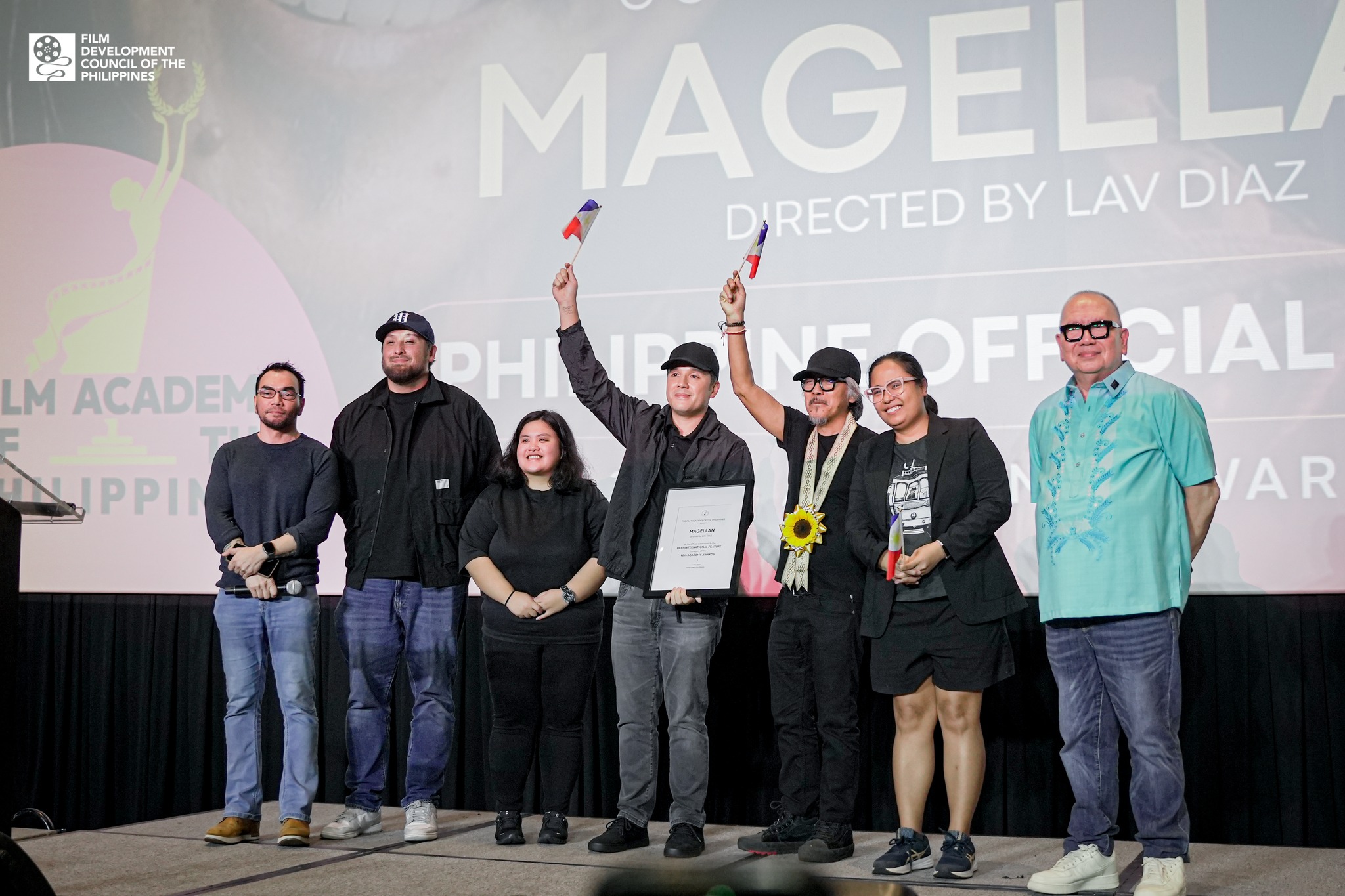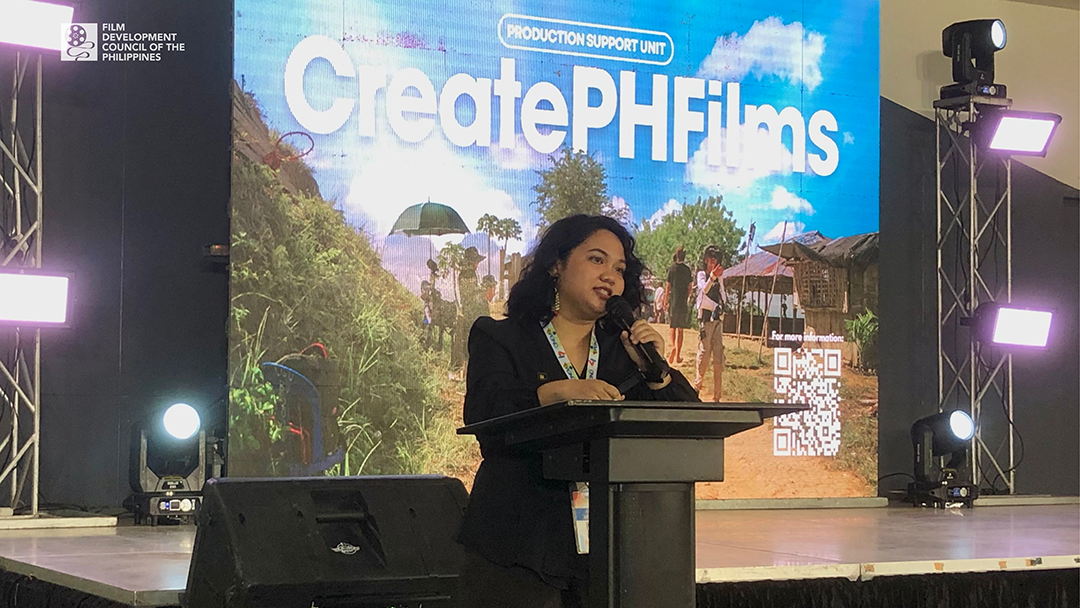Southern Voices Film Lab to Award P1M to Best Mindanaoan Film Project

MANILA, PHILIPPINES, JUNE 25, 2021 — After two years, the 1st Southern Voices Film Lab (SoVo Lab) of the Film Development Council of the Philippines (FDCP) will come to a close this weekend with the Pitch Showcase and Awarding Ceremony, both of which will be held online.
The SoVo Lab was established by the FDCP in 2019 to boost regional cinema by discovering indigenous stories and empowering the voices of filmmakers from Mindanao. The seven projects of the intensive script and development lab are:
- “Cangrejos” by Zurich Chan
- “Dancing the Tides” by Xeph Suarez
- “Devils in Paradise” by Joe Bacus
- “Diwalwal” by Jarell Serencio
- “Misery Mountain” by Orvil Bantayan
- “The Widow” by Ryanne Murcia
- “Virgins of the River” by Julienne Joy Ilagan
At the SoVo Lab Pitch Showcase on June 26, the filmmakers will present their projects in seven-minute pitches to the Selection Committee and the Decision Makers. One project will be chosen to receive the SoVo Lab co-production grant worth PHP 1 million. Meanwhile, recipients of grants and other recognitions will be announced during the Awarding Ceremony on June 27.
The seven SoVo Lab projects were each awarded a development fund worth PHP 100,000. After which, the SoVo Lab filmmakers went through three film labs with local and international mentors for the development of their projects and advancement of scripts to strengthen the quality of their feature-length films.
“The Southern Voices Film Lab is a groundbreaking effort for Philippine regional cinema as it has provided a new platform for Mindanaoan stories to be heard not just throughout the country but also globally through various selections and participations in international film labs and programs,” said FDCP Chairperson and CEO Liza Diño. “The FDCP vows to carry on with SoVo Lab and other initiatives to further enhance and promote the works of our regional filmmakers.”
 The first leg of SoVo Lab in Tagum City, Davao del Norte in June 2019
The first leg of SoVo Lab in Tagum City, Davao del Norte in June 2019
The Southeast Asia Fiction Film Lab (SEAFIC) 2019 and Hong Kong-Asia Film Financing Forum (HAF) 2021 selected “Cangrejos” while First Cut Lab Manila 2019, Ties That Bind 2020, and Cannes film lab La Fabrique Cinéma 2021 selected “Dancing the Tides.” “Devils in Paradise” was part of the ASEAN-ROK (Association of Southeast Asian Nations-Republic of Korea) Film Leaders Incubator (FLY) Film Lab, Asian Film Market 2019, and Full Circle Lab Philippines 2020.
“Cangrejos” producer Gale Osorio, “Dancing the Tides” director Suarez, and “Devils in Paradise” director Bacus were part of SEAFIC Open House 2019 while “Virgins of the River” writer, producer, and director Ilagan was a participant in Rotterdam Lab 2021 of the 50th International Film Festival Rotterdam.
Developing regional voices from Mindanao
In March 2019, the FDCP called for applications from up-and-coming filmmakers who are residents of Mindanao and are developing their first, second, or third feature film. The first leg of SoVo Lab, held in Tagum City, Davao del Norte in June 2019, featured talks and individual script consultations with SEAFIC Executive Director Raymond Phathanavirangoon, Variety’s Chief Asia Film Critic Maggie Lee, award-winning producer Balbuena-Liew, and acclaimed Mindanaoan filmmaker Sheron Dayoc.
The SoVo Lab Scriptwriting Session took place in Davao City in February 2020 with acclaimed Filipino writer, producer, and director Dodo Dayao and South Korean producer Yeonu Choi of CJ Entertainment. The SoVo Lab Producer’s Lab, which was the third and final leg, was held online in April 2021 with producers Balbuena-Liew, Isabelle Glachant, and Weijie Lai.
It has been a rewarding and fulfilling two years for the SoVo Lab filmmakers, and they shared the most significant learnings and realizations from their SoVo Lab journey.
“I don’t think that film being regional is a hindrance for the project and that’s what I realized with SoVo, that it’s not about the origin of the film. It’s about the content and the material, how strong it is,” said “Cangrejos” director Chan, adding that working with various mentors helped a lot in revising the script.
“Being a filmmaker in Mindanao always had its challenges; being that we are far from the filmmaking center which is Manila and also that Tagalog isn’t our first language. SoVo Lab introducing us to international mentors helped us so much to develop our project without dealing with the ‘one-inch barrier’ as Director Bong Joon-Ho said, which pertains to the difference of language. Having talked to our international mentors, I didn’t feel like I was a regional filmmaker, I felt like I was a filmmaker from the Philippines regardless if I was from Manila or Mindanao. They saw merit rather than origin,” he added.
His producer, Osorio, realized that not all mentors are equal. “You really have to choose which feedback to accept, to digest, and to apply. ‘Cause everyone has their own different opinions, their own different backgrounds, and we cannot accommodate all the feedback and put it all in our project,” she explained.
For “Dancing the Tides” director Suarez, he learned how to work with a producer. “To learn how to sit back tapos let my producer do most of the work in terms of producing. Because of that, nagkakaroon ako ng time to just think about the story and how to improve my characters, how to improve the story, tapos instead of focusing on applications, etc., mas nagkakaroon kami ng time ng writer na magbatuhan ng ideas and eventually write it down.”
His producer, Alemberg Ang, noted the importance of how SoVo Lab is developing regional voices from Mindanao similar to how Open Doors in Locarno develops projects per region. “It’s good also that regional filmmakers are helped in developing their projects as a region, because they will know their region best and they will know how to give each other feedback,” he added.
 The SoVo Lab Scriptwriting Session in Davao City in February 2020
The SoVo Lab Scriptwriting Session in Davao City in February 2020
The sensitivity and responsibility in filmmaking
“Devils in Paradise” producer Ben Padero is glad to be given the opportunity to dive deeper into Mindanao Cinema. “I’m very fortunate to be able to work with them as well and to learn from them and understand more the plight of Mindanao cinema in general, and understand the differences and the intricacies and the very personality of what we say Mindanao filmmaking is.”
“Diwalwal” director Serencio highlighted how his sensitivity as a filmmaker has evolved. “The entire lab really helped me to give more importance on really understanding the perspective of those people which I am dealing with in the story, the people in Diwalwal. As a human being, nakikita mo na, okay, the more you get to different stories there, and different individuals, you yourself also, you reflect.”
His producer, John Torres, talked about the process of filmmaking where there are directions and sign posts, but no shortcuts. “I am very much aware that giving prescriptions won't help, giving answers won’t help. It is really like what the mentors have been doing, asking questions and providing possibilities to the filmmakers so that they can discover for themselves what seems to be a good direction to head for.”
“Misery Mountain” writer, producer, and director Bantayan detailed, “I’ve been writing stories before and then I went into hiatus for five or six years. Before kasi it was very simple and then ngayon, parang mas nagiging technical na ‘yung the way storytelling should be told, and it's refreshing for me. Kung gagawa man lang tayo ng kuwento para panoorin ng tao kung may gusto tayong sabihin, may gusto tayong puntong iparating sa iba, it should be well-made and it should be appreciated.”
“The Widow” writer, producer, and director Murcia talked about the significance of building relationships in a production team similar to a romantic relationship. “In making films, you need to collaborate a lot. You need to collaborate with a lot of people, different personalities, different beliefs, different backgrounds. And being able to take care of those relationships and being able to know the relationship that matters, I think is what I really learned in this journey. Because making a film is like bearing a child. You cannot bear a child alone. You have to have someone, somebody, who you can trust enough to help you in bearing that film.”
Finally, “Virgins of the River” writer, producer, and director Ilagan stated the need for a filmmaker to know his or her intentions because filmmaking is a social responsibility. “It's not enough that you have a story. You really have to take responsibility in making sure that the message you're trying to communicate to your audience is very clear,” she said. “It’s something that you just can't release into the world. You really have to prepare for it and with all those things that you have to go through in the process of creating a film.”





